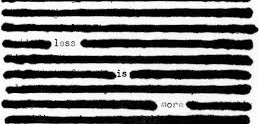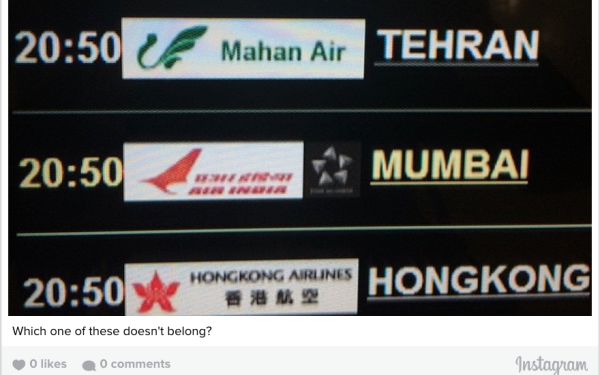Don’t Overlook the Civil/Criminal Liability (Potentially) Lurking in the JCPOA’s Foreign Sub Provision
As I’ve written about previously, the license for foreign subsidiaries of U.S. companies described in the Joint Comprehensive Plan of Action (“JCPOA”) is not all sunshine and rainbows. While the JCPOA technically opens up a pathway for foreign subsidiaries to benefit from the Iran deal in the same ways that foreign companies will benefit, a great deal of risk remains because of the relationship with the U.S. parent company. But it seems to me that there are additional risks that foreign subsidiaries of U.S. companies must consider when evaluating potential Iran-related business: Namely, civil or criminal liability for violations of the Iranian Transactions and Sanctions Regulations (“ITSR”).
Remember that in § 5.1.2 of Annex II of the JCPOA, the U.S. commits to
License non-U.S. entities that are owned or controlled by a U.S. person to engage in activities with Iran that are consistent with this JCPOA.
This will likely take the form of a General License.
A General License is necessary because of 31 C.F.R. § 560.215, put in place by the Iran Threat Reduction and Syria Human Rights Act of 2012 (“TRA”), in many ways extends U.S. personhood to foreign subsidiaries of U.S. companies:
(a) Except as otherwise authorized pursuant to this part, an entity that is owned or controlled by a United States person and established or maintained outside the United States is prohibited from knowingly engaging in any transaction, directly or indirectly, with the Government of Iran or any person subject to the jurisdiction of the Government of Iran that would be prohibited pursuant to this part if engaged in by a United States person or in the United States.
As it currently stands, foreign subsidiaries of U.S. companies are subject to the full range of prohibitions contained in the ITSR.
Under the JCPOA, foreign subsidiaries would appear to be treated in the same way as foreign companies. However there is no indication thus far that § 560.215(a) is going anywhere, only that foreign subsidiaries will be allowed to engage in the same types of JCPOA-approved activity as foreign companies, pending IAEA-certification of Iran’s compliance with the deal.
Not complicated enough for you? Don’t worry it gets better.
You may have noticed that § 560.215 prohibits transactions by U.S. owned or controlled foreign subsidiaries “with the Government of Iran or any person subject to the jurisdiction of the Government of Iran that would be prohibited pursuant to this part” (emphasis added). By it’s nature a forthcoming General License implementing JCPOA Annex II § 5.1.2. would authorize foreign subsidiaries to engage in activity normally prohibited under Part 560. But where does that leave liability for prohibited transactions with entities remaining on the SDN list?
As described in Attachment 3 to Annex II of the JCPOA, many Iranian parties that are currently blocked will be delisted on Implementation Day. Other entities that are identified as Government of Iran (“GOI”) and therefore blocked under pursuant to Part 560, as described in § 560.211, will have secondary sanctions related designations removed. U.S. persons, as well as their foreign subsidiaries will continue to be prohibited from transacting with these entities, unless otherwise authorized. The remaining entities are generally Iran’s Revolutionary Guard Corps (“IRGC”)-linked entities that are also designated for proliferation activity under E.O. 13382 or terrorism under E.O. 13224. Interestingly, almost none of these IRGC-tagged entities are also identified as GOI.
However, the Weapons of Mass Destruction Proliferators Sanctions Regulations (Part 544) and the Global Terrorism Sanctions Regulations (Part 594) contain no language comparable to § 560.215. If one only reads the regulations it is therefore unclear whether civil/criminal liability for violations of these two sections extends to foreign subsidiaries of U.S. companies.
But wait there’s more!
As described above, § 560.215 originates from the TRA, specifically §218. The language of §218 is written more broadly than § 560.215:
the President shall prohibit an entity owned or controlled by a United States person and established or maintained outside the United States from knowingly engaging in any transaction directly or indirectly with the Government of Iran or any person subject to the jurisdiction of the Government of Iran that would be prohibited by an order or regulation issued pursuant to the International Emergency Economic Powers Act (50 U.S.C. 1701 et seq.) if the transaction were engaged in by a United States person or in the United States. (emphasis added).
Thus the language of the statute appears to extend the prohibitions on foreign subsidiaries of U.S. persons to transactions with all Iranian entities, including those designated under any sanctions program, including Executive Orders 13382 and 13224.
§ 218(c) also makes clear that liability for civil violations engaged in by foreign subsidiaries will be borne by the U.S. parent, regardless of whether or not the parent was aware of the conduct.
It seems to me that there’s an open question as to how the U.S. government will view foreign subsidiaries of U.S. companies post-Implementation Day. If I were to bet, I’d wager that foreign subsidiaries will continue to be treated as U.S. persons for the purposes of Iran sanctions, which, I should add, is a view unique to the Iran sanctions program. Therefore, foreign subsidiaries of U.S. companies will be required to comply with the ITSR, outside of what is articulated in a future General License implementing Annex II § 5.1.2. In turn, OFAC and U.S. law enforcement agencies will have more tools for punishing foreign subsidiaries who violate the remaining restrictions than they will have to go after foreign companies who do so. Regardless, it is a point that OFAC should consider when drafting any forthcoming General License.
It’s also important to keep in mind the specific interpretations of U.S. sanctions published by the Office of Foreign Assets Control’s (“OFAC”) impact both U.S. parents and their foreign subs. Under OFAC’s interpretation of ownership, any company that is owned 50 percent or more in aggregate by one or more SDNs is considered blocked by function of law. This is known colloquially as the “50 Percent Rule.” Any transactions by U.S. persons with an entity owned 50 percent or more by SDNs, whether or not the entity appears on the SDN list itself, are considered violations of U.S. sanctions regulations and can result in civil or criminal penalties, depending on whether the transactions were undertaken willfully, i.e. in violation of a known legal duty.
However, the 50 Percent Rule only applies to U.S. persons. Furthermore, unless there is the requisite jurisdictional hook, the only avenue for penalizing a purely foreign company for violations of secondary sanctions is a designation. Designations, depending on which sanctions provision is violated can result in a menu of different prohibitions, including freezing a company’s assets in the United States and prohibiting U.S. persons from any dealings with the company. Because foreign subsidiaries of U.S companies will still be considered U.S. persons, they (or their parents) could be subject to markedly different penalties than foreign companies for violations of remaining sanctions. For reasons described below, the U.S. may be more willing and/or able to penalize a U.S. company than a foreign company for the same conduct.
As an example, let’s consider a simplified business relationship involving Iran’s energy sector after Implementation Day, when sanctions relief goes into effect.
- Company A is a wholly-owned foreign subsidiary of a U.S. oil services firm, Company C.
- Company B is a major European oil services firm with no U.S. employees, but is reliant on the U.S. financial system and U.S. business.
- Company Z is an Iranian oilfield operator that is 25 percent owned by Khatam al-Anbia and 30 percent owned by a wholly-owned subsidiary of Bonyad Taavon Sepah, another IRGC-linked entity which will remain designated post-deal and subject to secondary sanctions. Company Z is not identified on the SDN List.
- Both Company A and Company B provide certain services to Company Z that, if not for Company Z’s ownership, would be consistent with sanctions relief provided under the JCPOA.
It is well known that the IRGC has significant involvement in Iran’s energy sector, through a number of companies including its construction arm Khatam Al-Anbia. Because sanctions, including secondary sanctions on the IRGC will remain in effect after the nuclear deal, both U.S. and foreign firms can be punished for dealings with the Guards. While Khatam Al-Anbia is designated both for its IRGC ties and under proliferation sanctions under E.O. 13382, many IRGC-owned or controlled firms are not specifically identified on OFAC’s list of Specially Designated Nationals and Blocked Persons (“SDN”).
Because Company Z is 50 percent owned by designated entities, Company A, which is still a U.S. person under § 560.215/TRA § 218, is clearly in violation of U.S. sanctions. If Company A’s violations were simply the result of inadequate due diligence, Company C could be fined $250,000 or twice the value of the transactions with Company Z, per transaction. If Company A knew that Company Z was in fact blocked by function of law, the company itself or its employees could potentially face criminal prosecution for violations of the International Emergency Economic Powers Act. Particularly in the case of a civil violation, a monetary penalty, while certainly painful, would probably not endanger the company’s survival, nor would it have major geopolitical ramifications.
The enforcement picture for Company B is far different. Because Company B’s Iran operations have no ties to the United States, U.S. regulators and law enforcement agencies have no legal authority to issue civil or criminal penalties. The only possible enforcement action would be for OFAC to designate Company B for providing material support to the IRGC or alternatively prohibit the opening or maintenance of correspondent accounts by U.S. persons with the foreign financial institution that facilitated payments to Company B by Company Z. The designation of a major European company is likely to anger EU member states, as a designation could be a death sentence for Company B, the ownership structure of Company Z is reasonably opaque, and the activity involved is consistent with the JCPOA. Moreover, the designation of Company B would likely have significant negative consequences for other EU and U.S. firms who rely on Company B.
While the example above cannot fully represent the complexity that goes into an enforcement action, it should illustrate how the United States will encounter fewer difficulties penalizing foreign subsidiaries of U.S. companies for violations of any sanctions that remain after a deal. Furthermore, the 50 percent rule combined with the more vigorous enforcement posture of U.S. regulatory agencies compared to their foreign counterparts, means that foreign subsidiaries of U.S. companies entering Iran will need to conduct extensive due diligence to ensure that they are not partnering with unsavory characters.
UPDATE: It occurs to me that § 4 of Executive Order 13628 extends on the prohibitions on dealings with Iranian 13382 designees to foreign subsidiaries of U.S. companies. While this doesn’t change any of the above analysis and it is not reflected in regulations, I should have referenced this EO.



